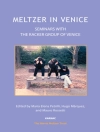This groundbreaking monograph offers a mechanistic theory of the representation and use of semantic knowledge, integrating the strengths and overcoming many of the weaknesses of hierarchical, categorization-based approaches, similarity-based approaches, and the approach often called "theory theory." Building on earlier models by Geoffrey Hinton in the 1980s and David Rumelhart in the early 1990s, the authors propose that performance in semantic tasks arises through the propagation of graded signals in a system of interconnected processing units. The representations used in performing these tasks are patterns of activation across units, governed by weighted connections among them. Semantic knowledge is acquired through the gradual adjustment of the strengths of these connections in the course of day-to-day experience.The authors show how a simple computational model proposed by Rumelhart exhibits a progressive differentiation of conceptual knowledge, paralleling aspects of cognitive development seen in the work of Frank Keil and Jean Mandler. The authors extend the model to address aspects of conceptual knowledge acquisition in infancy, disintegration of conceptual knowledge in dementia, "basic-level" effects and their interaction with expertise, and many findings introduced to support the idea that semantic cognition is guided by naive, domain-specific theories.
James L. McClelland & Timothy T. Rogers
Semantic Cognition [PDF ebook]
A Parallel Distributed Processing Approach
Semantic Cognition [PDF ebook]
A Parallel Distributed Processing Approach
Dieses Ebook kaufen – und ein weitere GRATIS erhalten!
Sprache Englisch ● Format PDF ● Seiten 448 ● ISBN 9780262282505 ● Verlag The MIT Press ● Erscheinungsjahr 2006 ● herunterladbar 3 mal ● Währung EUR ● ID 7972976 ● Kopierschutz Adobe DRM
erfordert DRM-fähige Lesetechnologie












